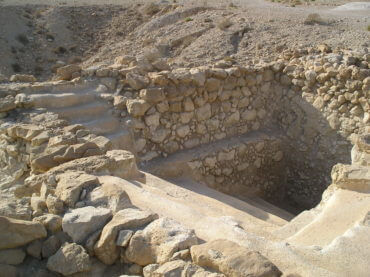
How One Woman Brought Light Into a Post October 7 World by Giving Away Her Kidney
We’re in a time where a lot of dark things are happening in the world. I don’t need to go into detail — if you go on Instagram, or click on a news site, you’ll see them. It’s easy to fall into a state of despair, but when you’re just about to, please remember that there are also a lot of beautiful things happening in this world as well. Alison Gross is a living example of one of them.
In December of last year, she donated one of her kidneys to a woman in need who regained a whole new chance at life. When it comes to Jews helping Jews, this mitzvah is certainly at the top of the list.
Alison, 49, of West Hempstead, New York, shares that donating a kidney is something she always thought she might do. She’s married, and has four kids between the ages of 25 and 16. She’s always been a blood and platelet donor. “Needles don’t scare me,” she says. After watching her sister-in-law go through chemo and see such an immediate difference in her after she had a platelet transfusion, it was a no brainer to help in that way. “She went from someone who didn’t even have the energy to speak to walking up and down the hall.”
She also has an uncle that received a liver from someone eight and a half years ago and is thriving because of it, so organ donation is something close to her heart. “There are a lot of life events he’s been a part of because of it.”
Her journey to kidney donation all started at a swabbing event with the organization, Renewal, that was aimed at finding a match for someone in the community. The event was successful in myriad ways. There was someone in her community that was a match and they had surgery in August. Both are doing well now post-op.
October 11, the day before her daughter’s wedding, Alison got a call of her own saying she also matched with three different people. While it was a crazy day to be having the conversation, because there were so many vendors that could be calling from unknown numbers, she decided to answer the phone and was grateful that she did. It resulted in a 45 minute conversation about the process and what it all entailed.
Over the course of the sheva brachot, speaking to an anesthesiologist friend and doing some research of her own on the risks, she agreed to move forward in the process. The first two matches didn’t work out because the patient wasn’t ready for a transplant, but the third ended up being a woman who was on the transplant list for a year and a half. It was truly a moment of hashgacha pratis (Divine Intervention) because this woman had a transplant scheduled already but then the donor fell through.
“My contact at Renewal said someone is going to have to call her and it’s going to be very, very emotional,” Alison shares. “[When getting a new kidney] you really are getting this renewal so it’s going from a very big high to a low where you almost wish you didn’t know about it to begin with.”
When Alison agreed to be her donor, not only did he not have to share the original transplant fell through, but the surgery actually got moved up a week and was scheduled for December 4th.
The two didn’t meet beforehand, but were actually at the same hospital on the same floor for their surgeries (it doesn’t always work out like this). They did write cards to each other beforehand though and learned each other’s names. Alison’s recipient is a woman named Bonnie. The wife of her uncle who received the liver transplant is also named Bonnie, so it was a nice moment of connection.
Alison explains that they use a blood test to monitor your kidney function. “Going into the surgery, Bonnie’s was off-the-charts high,” she says. Just a few days later after the surgery, she went down tremendously. “After 30 years of having kidney disease, I can’t even imagine what it was like to hear that.”
Bonnie is still at home in Massachusetts recovering, but Alison does hope to meet her which is something the organization, Renewal can arrange if both parties are interested.
For Alison, it wasn’t just a moment of giving, it provided her with a deeper connection to God. When you get a kidney transplant, they don’t take one out and replace it, they actually just add a third and they’re able to see right away during the surgery that the kidney starts working. “I don’t know how any scientist doesn’t believe in God,” Alison says. “How does the body just have this amazing ability to heal itself? They just push the intestines to the side to make space for another kidney. They call it a pelvic kidney because it’s actually lower down in the front.”
–
Alison also got the call just a few days after October 7 and while it’s something she always considered she would do, the way Jews were brutally attacked gave her desire to help more weight.
She and her family were actually supposed to travel to Israel after her daughter’s wedding, but because of the attack and war, they canceled their trip. Because of this, they were able to speed up the process of the kidney donation surgery.
Also, it was powerful to be giving her kidney to another Jew. Bonnie is not Orthodox, but is connected to a synagogue where she lives in Massachusetts. “Once you decide to donate, I don’t really relate to the idea of choosing between Jews of different affiliations,” Alison shares. “It’s not like Hamas attacked Israel and said ‘these Jews are on the left and those are on the right.’ We’re the only ones who make that distinction. Maybe this has been our wakeup call that it’s time to stop that. You just hear about people helping Jews now.”
While Alison is recovering nicely, she does want to make a point of saying that no one should feel bad if they are not able or willing to do this mitzvah. She credits her husband, kids and community with enabling her to do this chesed as well. “You can’t do it on your own,” she says.
When she was evaluated before the surgery (there is an extensive physical health and psychological evaluation to make sure you’re a good candidate) they examine your social network. They ask who is going to be able to get groceries for you, to cook, to take care of you post-surgery. “Even though my husband didn’t give his kidney, I wouldn’t have been able to give mine if I didn’t have him there, so he really shares the zechut (merit),” Alison says. “Everyone does what they can in their own way.”
“With Israel, I can’t pick up a gun and go fight, but I can do something else and it’s still meaningful,” she continues. “I can find my own way to help.”
If you found this content meaningful and want to help further our mission through our Keter, Makom, and Tikun branches, please consider becoming a Change Maker today.







1 comment
Sort by
I think from that event in west hempstead there was a handful of donors that resulted from it